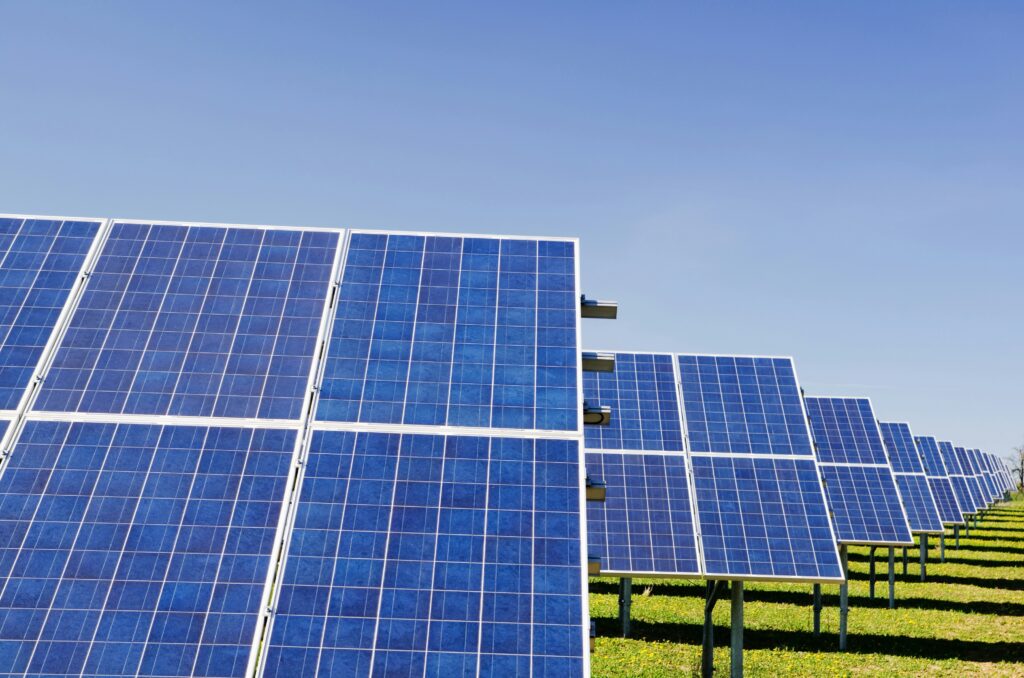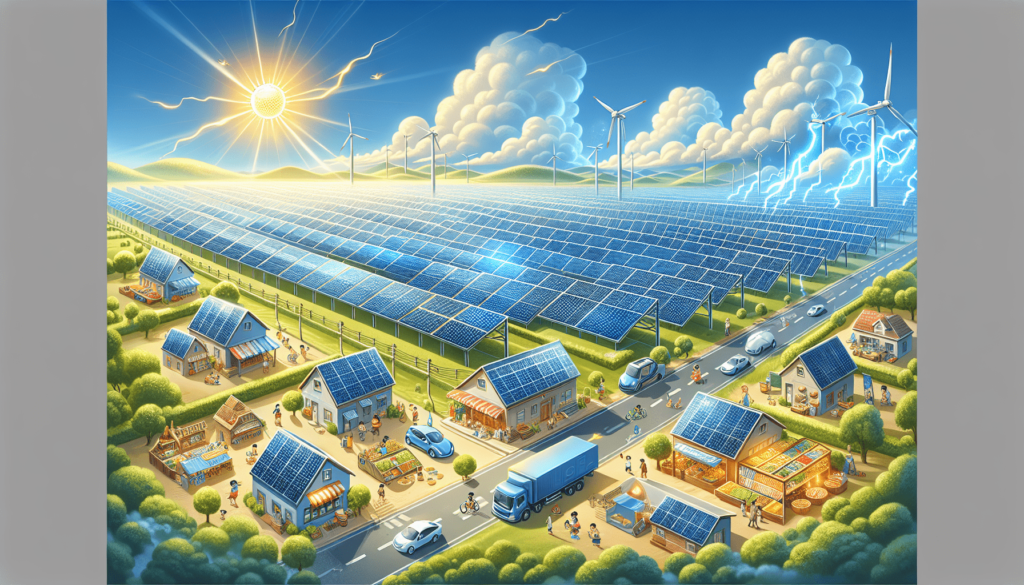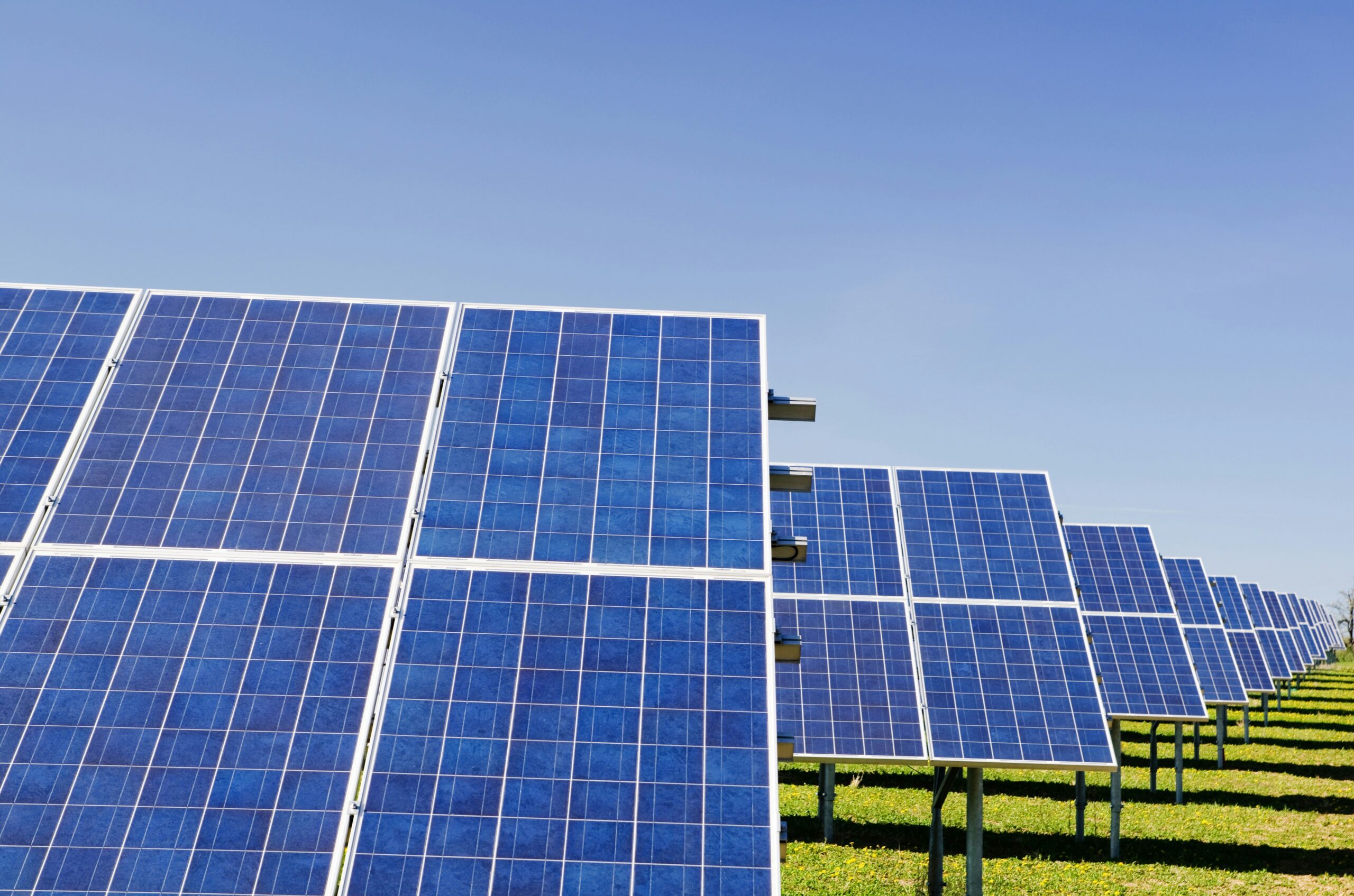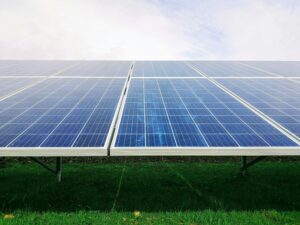Solar energy has become an increasingly popular source of power in recent years, and for good reason. With its ability to harness the sun’s rays and convert them into useful electricity, solar energy offers a multitude of benefits. From reducing electricity bills to promoting environmental sustainability, the advantages of using solar energy are hard to ignore. In this article, we will explore the various benefits that come with adopting solar energy as a renewable and dependable alternative to traditional power sources.

Renewable and Sustainable
Inexhaustible Energy Source
Solar energy is a renewable and inexhaustible source of energy. Unlike fossil fuels such as coal, oil, and natural gas, solar energy can be harnessed and utilized without the fear of depletion. The sun, which is the primary source of solar energy, provides an abundant supply of energy that will continue to be available for billions of years. By relying on solar energy, we can ensure a constant source of power for generations to come.
What Are The Benefits Of Using Solar Energy?
Reduces Dependence on Fossil Fuels
One of the key benefits of using solar energy is that it reduces our dependence on fossil fuels. Fossil fuels are not only limited in supply but also have a negative impact on the environment. Burning fossil fuels releases harmful greenhouse gases into the atmosphere, contributing to climate change. By utilizing solar energy, we can significantly reduce our reliance on fossil fuels and work towards a more sustainable and green future.
Cost Savings
Significantly Decreases Electricity Bills
One of the most noticeable benefits of using solar energy is the significant cost savings it brings. By installing solar panels on our rooftops or properties, we can generate our own electricity and reduce our reliance on the traditional power grid. This results in a considerable decrease in electricity bills, giving us more control over our energy expenses. In fact, studies have shown that solar panel owners can save thousands of dollars over the lifespan of their solar system.
Reduces Overall Energy Costs
In addition to reducing electricity bills, solar energy also helps to decrease overall energy costs. By generating our own electricity, we no longer need to solely rely on energy companies for power. This reduces the impact of rising energy prices and provides a more stable and predictable energy cost. Moreover, solar energy systems have minimal maintenance requirements, further reducing long-term energy expenses.

Environmentally Friendly
Reduces Greenhouse Gas Emissions
Solar energy is a clean and renewable energy source that produces minimal greenhouse gas emissions. Unlike fossil fuels, solar power does not release harmful pollutants or carbon dioxide into the atmosphere when generating electricity. By using solar energy, we can significantly reduce our carbon footprint and contribute to the fight against climate change. This is crucial in preserving the environment and ensuring a sustainable future for the planet.
Minimizes Air Pollution
In addition to reducing greenhouse gas emissions, solar energy also helps to minimize air pollution. Traditional energy sources, such as coal-fired power plants, release pollutants such as sulfur dioxide, nitrogen oxide, and particulate matter into the air. These pollutants have detrimental effects on both human health and the environment. By embracing solar energy, we can create a cleaner and healthier environment by eliminating the harmful emissions associated with conventional energy generation.
Energy Independence
Reduces Reliance on External Energy Sources
Solar energy promotes energy independence by reducing our reliance on external energy sources. Many countries heavily rely on imported fossil fuels, which can be vulnerable to supply disruptions and price fluctuations. By harnessing solar power, we can generate our own electricity domestically, reducing our dependence on foreign energy imports. This strengthens energy security and ensures a stable and reliable energy supply for our homes and businesses.
Enhances National Security
Solar energy also enhances national security by reducing vulnerability to energy-related conflicts. As countries compete for access to limited fossil fuel resources, tensions can arise, leading to geopolitical disputes and potential conflicts. By transitioning to solar energy, we can mitigate these risks and reduce the likelihood of energy-related conflicts. Solar power provides a decentralized energy source that empowers individuals and communities to take control of their own energy needs, contributing to a more stable and secure nation.

Job Creation
Expands Opportunities in the Renewable Energy Sector
The adoption of solar energy creates new opportunities in the renewable energy sector, leading to job creation and economic growth. As the demand for solar energy increases, there is a need for skilled workers in areas such as solar panel installation, manufacturing, research and development, and maintenance. By investing in solar energy, we can drive economic development, create jobs, and stimulate local economies.
Supports Local Economy
In addition to job creation, solar energy also supports local economies. By installing solar panels and utilizing local resources, such as skilled labor and materials, we can keep economic benefits within our communities. This helps to strengthen local businesses and create a ripple effect of economic growth. Furthermore, solar energy projects can attract investments and foster partnerships, further boosting the local economy.
Long-Term Durability
Low Maintenance Requirements
Solar panels have low maintenance requirements, making them a cost-effective and long-lasting energy solution. Once installed, solar panels require minimal upkeep, with most manufacturers offering warranties for 25 years or more. Regular cleaning and inspections can ensure optimal performance, but overall, solar panels remain durable and reliable, requiring minimal intervention or additional expenses.
Long Lifespan of Solar Panels
Solar panels have a long lifespan, typically lasting 25 to 30 years or more. With advancements in technology and manufacturing processes, solar panels are becoming increasingly efficient and durable. This longevity ensures a stable and consistent energy source for decades. Considering the significant cost savings and environmental benefits, the long lifespan of solar panels makes them a wise investment for both residential and commercial properties.

Energy Grid Resilience
Lessens Strain on Electricity Grid
Solar energy lessens the strain on the electricity grid by reducing the demand for traditional power sources. During peak demand periods, when electricity usage is typically high, the grid can become overloaded, leading to blackouts or power outages. By generating electricity through solar energy systems, we can alleviate the pressure on the grid and ensure a more reliable and resilient energy supply. Additionally, solar power production is often highest when demand is greatest, providing an ideal match for peak load periods.
Enhances Grid Stability
Solar energy contributes to grid stability by decentralizing power generation and increasing the reliability of the energy system. Traditional power grids are susceptible to disruptions and failures, but distributed solar generation minimizes the risks associated with centralized energy production. In areas prone to natural disasters or grid failures, solar energy can act as a reliable backup, providing electricity when the grid is down. This enhances the resilience and stability of the overall energy grid.
Diverse Applications
Power Generation for Residential Properties
Solar energy can be used effectively in residential properties for power generation. By installing solar panels on rooftops, homeowners can generate their own electricity and reduce their reliance on the grid. This enables homeowners to take control of their energy costs and reduce their environmental impact. Furthermore, excess solar energy can be sold back to the grid, allowing homeowners to earn credits or even generate additional income.
Usage in Remote and Off-Grid Areas
Solar energy is also a valuable solution for remote and off-grid areas. In regions without access to traditional power infrastructure, solar energy provides a reliable and sustainable source of electricity. Off-grid solar systems, combined with energy storage solutions, can power homes, schools, hospitals, and other essential facilities. By embracing solar energy, we can bridge the energy gap and improve the quality of life in remote and underserved communities.
Reduces Water Consumption
Minimizes Water Usage in Power Generation
Unlike fossil fuel power plants that require vast amounts of water for cooling and steam production, solar energy requires very little water for its operation. The photovoltaic process that converts sunlight into electricity does not consume water. By utilizing solar energy, we can reduce the strain on water resources and conserve this precious asset, especially in regions facing water scarcity or drought conditions.
Conserves Water Resources
In addition to minimizing water consumption, solar energy also helps to conserve water resources indirectly. Traditional energy generation methods, such as coal and nuclear power, rely heavily on water for cooling purposes. By transitioning to solar energy, we can reduce the need for these water-intensive energy sources, thus preserving water resources for other essential needs and ecological purposes.
Incentives and Tax Benefits
Government Incentives for Solar Installation
Many governments offer incentives to encourage the adoption of solar energy. These incentives can come in the form of financial support, tax credits, grants, or subsidies. Governments recognize the environmental benefits of solar power and aim to stimulate its growth through these incentives. By taking advantage of these programs, individuals and businesses can lower the upfront costs of solar installation and accelerate the transition to renewable energy.
Financial Savings through Tax Credits
In addition to government incentives, solar energy also offers financial savings through tax credits. In many countries, homeowners and businesses that install solar panels can benefit from tax incentives, such as a reduction in income tax or property tax. These tax credits provide a financial incentive for adopting solar energy, making it a more affordable and attractive option for individuals and businesses alike.
In conclusion, solar energy offers numerous benefits that make it an attractive and sustainable energy option. From its inexhaustible source and cost savings to its environmental impact and job creation potential, solar energy provides a comprehensive solution to our energy needs. By embracing solar power, we can reduce our dependence on fossil fuels, mitigate the effects of climate change, strengthen local economies, and ensure a brighter and cleaner future for generations to come. So, let’s harness the power of the sun and embrace the benefits of solar energy!




